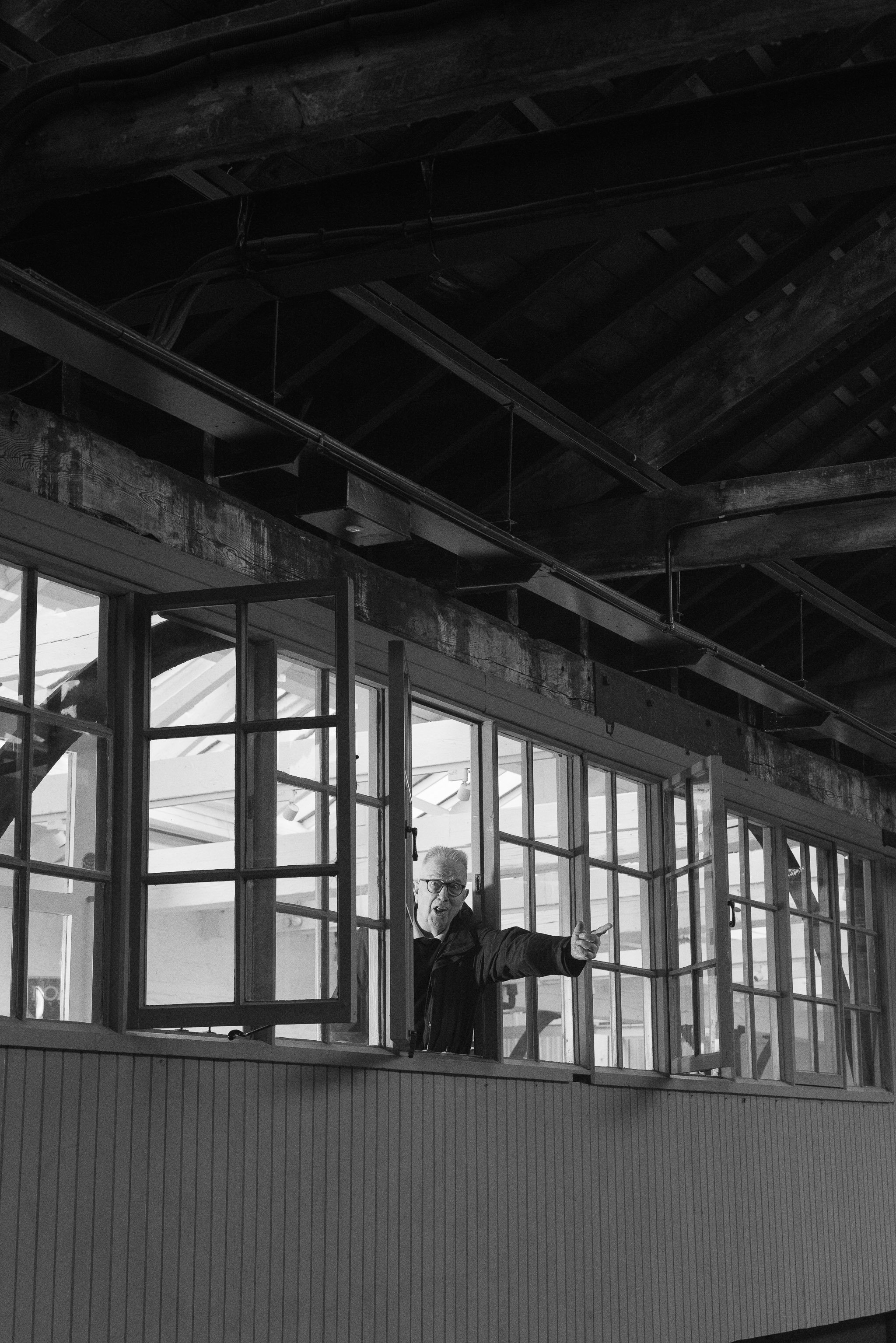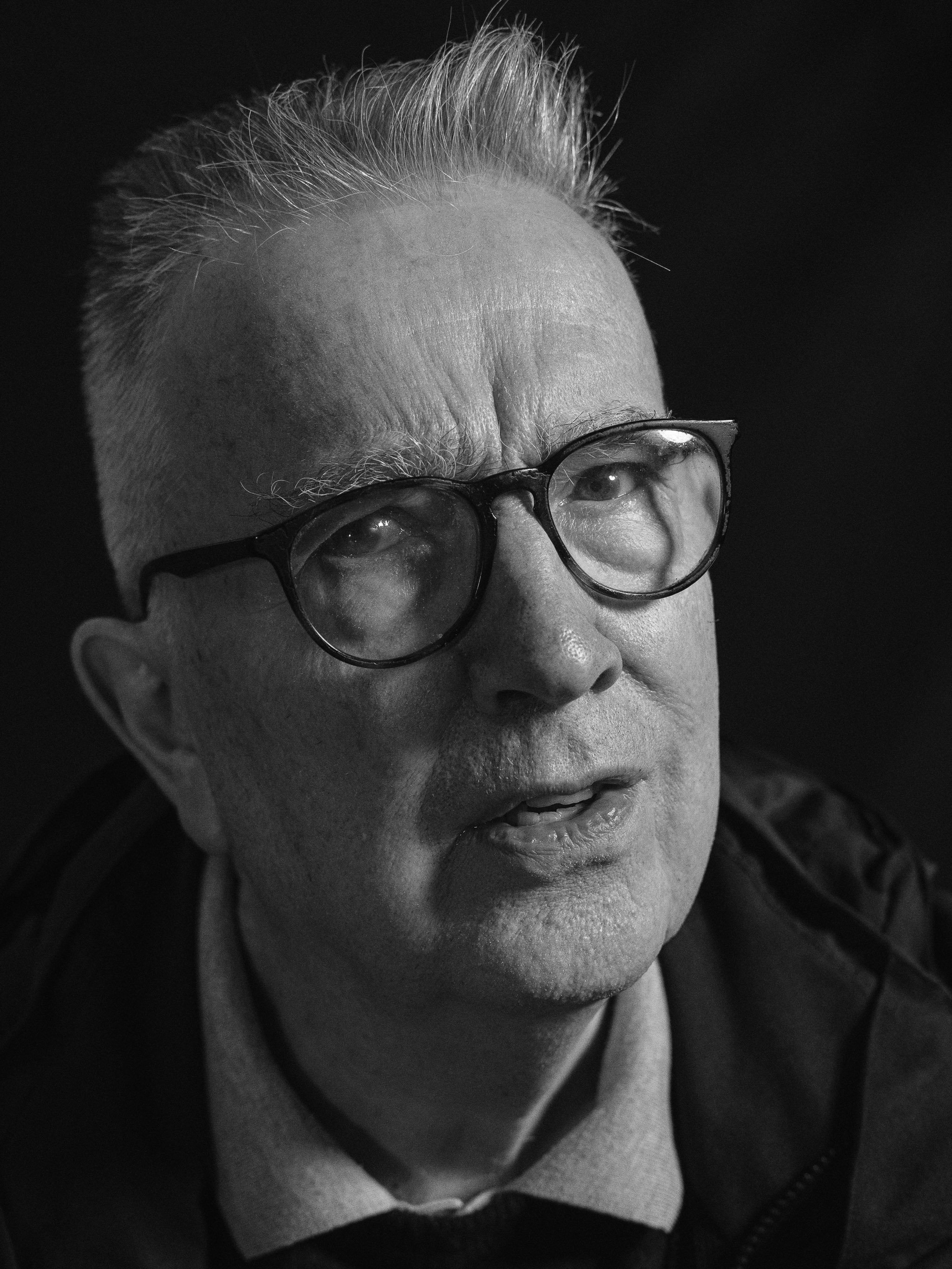WHATEVER THE HELL THAT IS,
I WANT TO BE ONE OF THEM
Tom Robinson
As a songwriter, Tom Robinson penned one of the anthems of the gay rights movement. As a broadcaster, he’s dedicated to supporting artists and providing a platform for new music. We spoke to him about his career in music, building a fanbase, and the role of political and protest songs in our changing society.
Interview by Arlen Pettitt
Photographs by Christopher Owens
If you ask Tom Robinson who he is, he has a readymade answer.
“Musical family, quaker education, unhappy teens,” he begins, “nervous breakdown aged 16. Six years in a therapeutic community. Journey in 20s from dull office to Top 10 hit in 12 months flat. Achieve mild notoriety as gay rights campaigner. Nervous breakdown at 30, followed by bankruptcy, psychotherapy, slow recovery. Second Top 10 hit aged 33, late onset bisexuality, first work for BBC radio, fatherhood at 40. Now earn a living as a broadcaster and at age 73 renew my own musical inspiration by helping others get in touch with theirs.”
As you’d expect from one of the broadcasters central to BBC Introducing, Tom is something of an aficionado of the 100 word biography - he’s certainly read enough of them. He tells me the point isn’t to talk about how great you are, but how interesting you are.
Well, I’m interested.
"I thought ‘whatever the hell that is, I want to be one of them’, you know?"
The musical family were classical, and young Tom’s piano lessons didn't take, but it was while in the therapeutic community that his eyes were opened.
“Alexis Korner was an old boy of that place,” Tom says, “he’d been there in the war and came down as a celebrity visitor. He played an acoustic concert in the principal’s study for about 20-30 boys, all crammed into this room.”
“To see this 40-something year old man with grizzled hair and a floral shirt strap on an acoustic guitar,” he continues, “without the smallest hint of embarrassment, in front of a bunch of strangers, and just open his mouth and sing. Sing the blues as he saw it, as he knew it, songs about cold-hearted women, police brutality, racism, all the things the blues are about. I thought ‘whatever the hell that is, I want to be one of them’, you know?”
Another thing happened that day. As well as Korner’s old boy, there was a new boy who arrived at the place.
Danny Kustow was 14 years old and was similarly inspired, going away determined to learn guitar. Years later, when Tom was forming the Tom Robinson Band, Danny pestered him to play lead guitar.
“If it hadn’t been for punk, I’d never have said yes,” Tom recalls. “I wasn’t much of a singer, if you listen to all my early records the vocals are all out of tune, but that was secondary. In the age of Johnny Rotten and Joe Strummer, it was clear that being passionate and truthful was more important than being pitch perfect. So, I thought if that’s the case, with me and my voice and my bass playing, then it doesn’t really matter what Danny Kustow can do.”
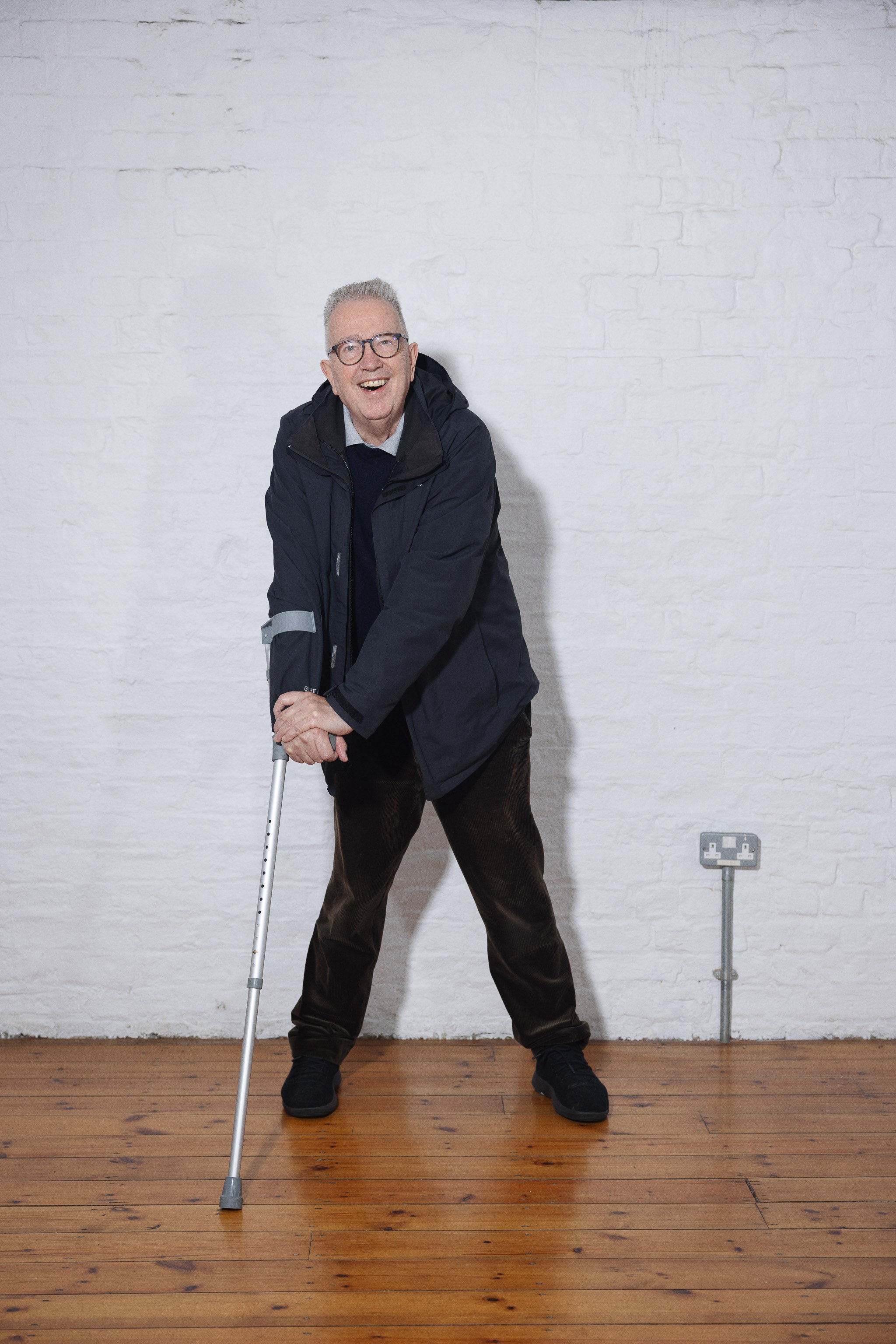
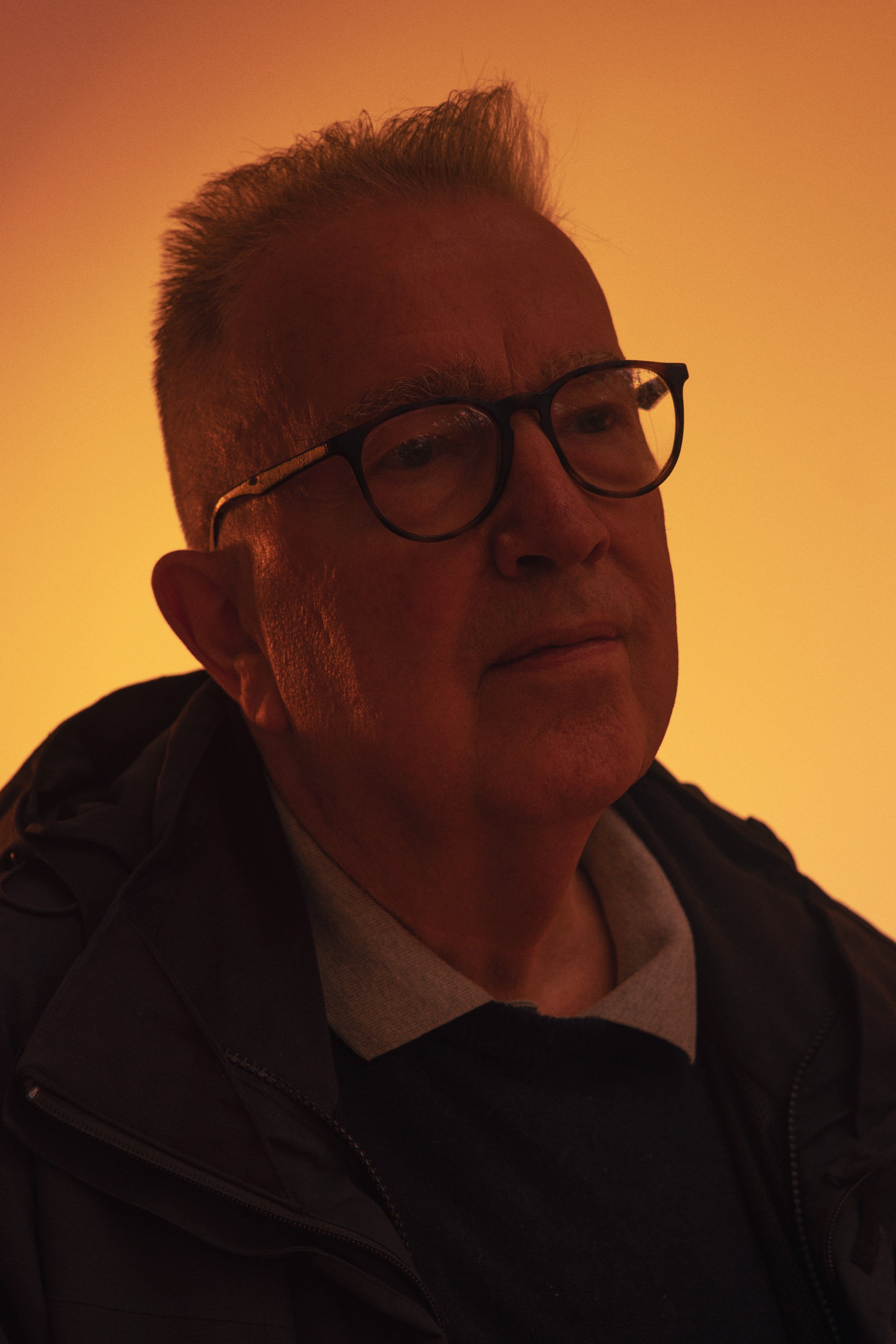
But in the ten years that had passed, Danny had learned to play.
“He was phenomenal,” Tom says. “It took about two gigs before I realised he was cutting a swathe through the audience from his side of the stage with this kind of incendiary, flame-thrower guitar, which went on to power the band. Without that passion, professionalism and sheer integrity, I don’t think the band would ever have succeeded just with my singing and songwriting alone.”
That combination drove the band, but was also volatile because - in Tom's words - they were both “batty as fruitcakes”.
“But that meant you had some sparks flying and some creative energy going on,” he says of his relationship with Kustow, who died in 2019. “I’m grateful to him to this day, even though he’s no longer with us.”
The Tom Robinson Band followed an ill-fated period in an acoustic trio called Cafe Society, and a dodgy experience with Ray Davis of The Kinks - who produced their first album (“he did a wretched job”) - taught Robinson not to rely on the industry, or on experts.
“The connection with an audience is the key thing,” he explains. “Not getting on Radio 1, not getting to play Glastonbury, not getting a Top 10 hit.”
The Tom Robinson Band were deliberate and meticulous in their approach to cultivating a following and building that connection with their audience.
He explains to me how while the music has to come first, and has to be great, you then have to find a tribe for that music.
“I got hold of an old battered typewriter and a Roneo machine,” Tom says. “I used to turn out newsletters that we handed out to everybody at every gig which had who’s in the band, where we’re playing next, reviews of gigs we’d done, agitprop things, what to do if you were arrested, how to join Rock Against Racism, the phone number for Gay Switchboard and - crucially - said if you want to write to us, we want to hear from you…‘all letters with a stamped, addressed envelope answered’.”
He compares this to social media before social media, having the same impact as an artist would now when replying to a comment on their Youtube channel and forming a direct connection with a fan.
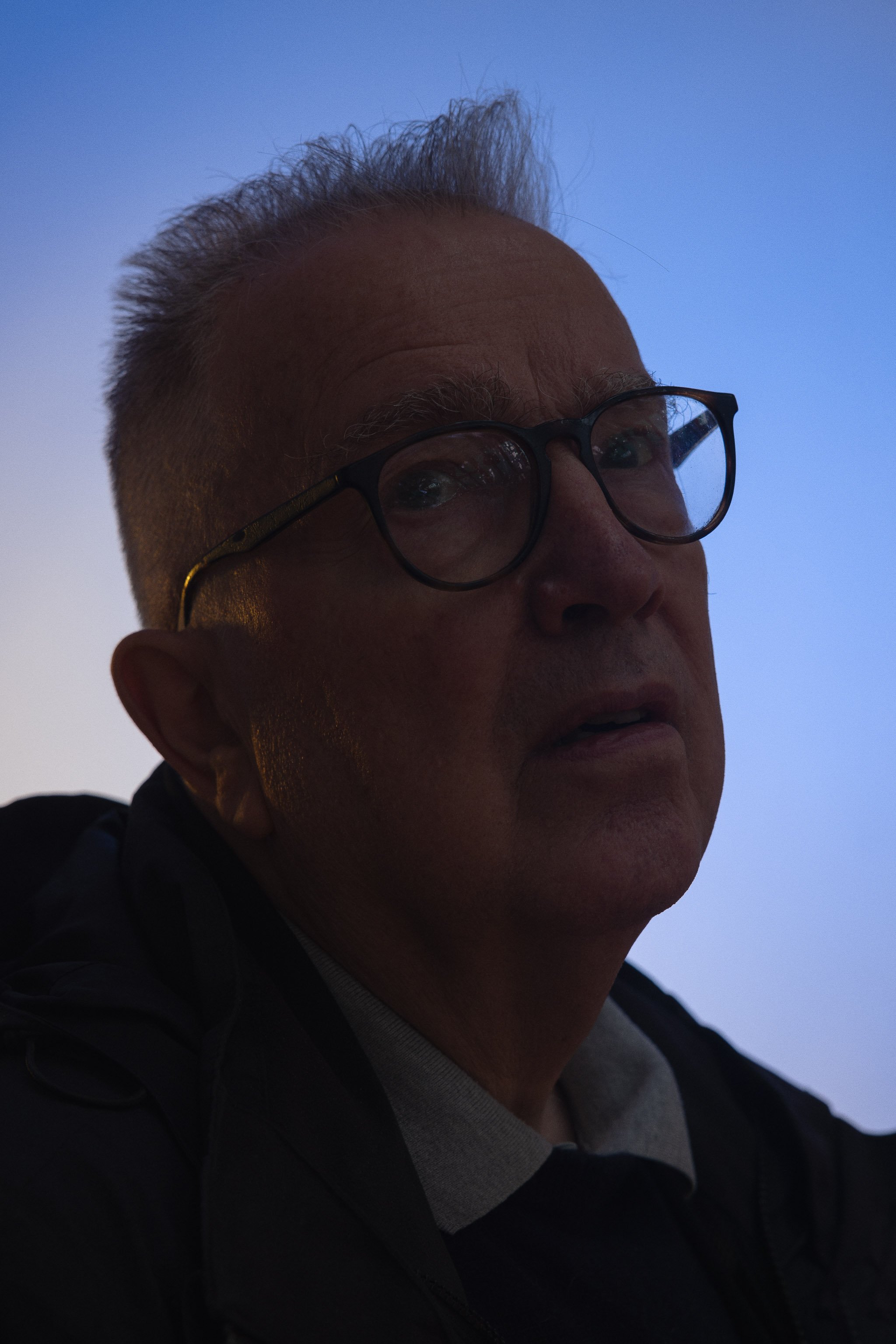
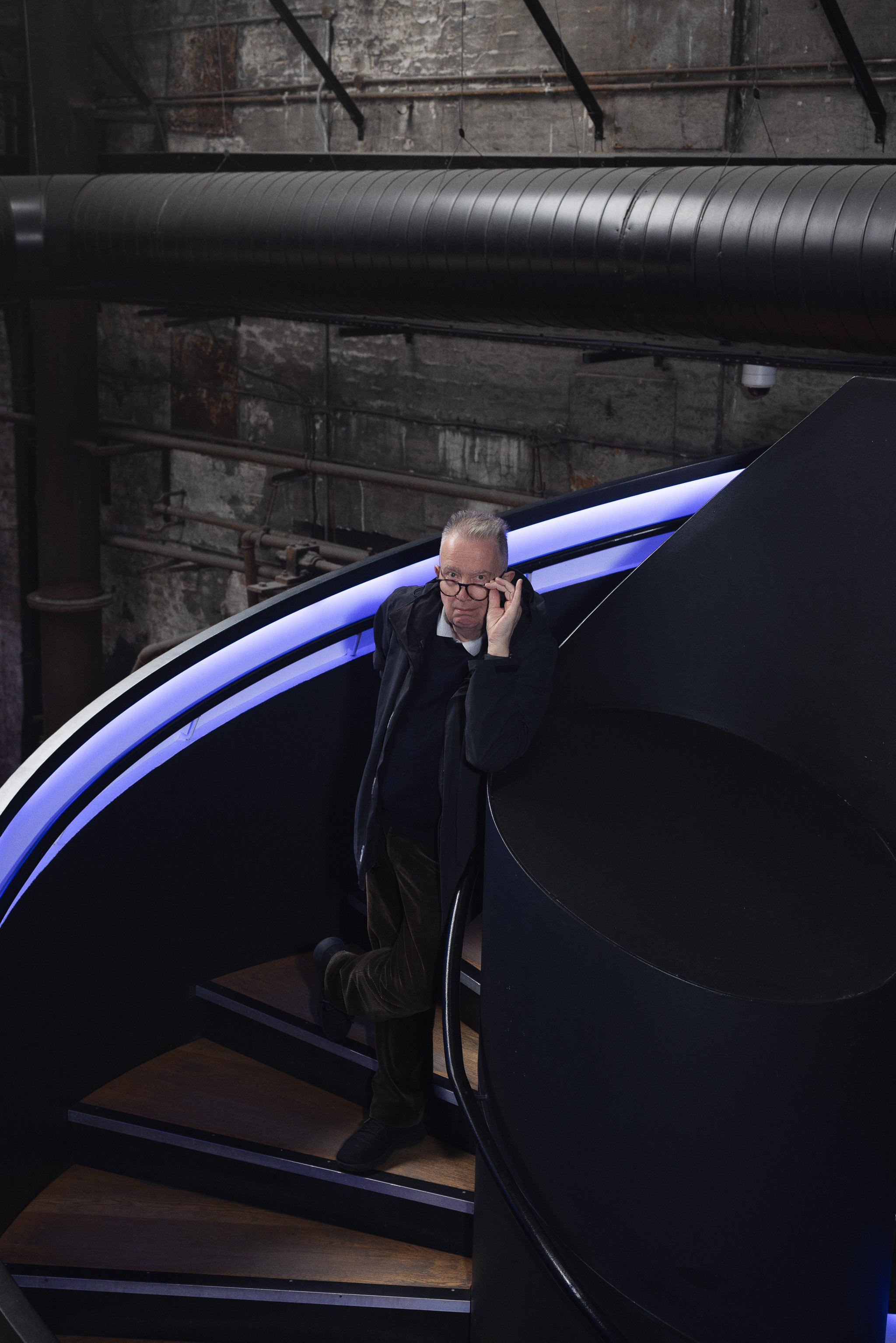
“One killer song will be like the Saturn rocket that lifts the space shuttle off into the stratosphere.”
The newsletters sound just as much a statement of intent as vessels of information: a band saying who they were and what they stood for, and who they believed the audience were too.
Tom is emphatic when I put that to him.
“We’re a family. You belong to the family,” he says. “All the bands that you would want to wear on a t-shirt have that quality to them. Benefits is the most obvious example. With Benefits, lots of people will hate it, and that doesn’t matter. Lots of people will go ‘it’s just sheer noise’ and who does he think he is and all the rest of it. But enough people will see it and get it and go ‘Oh, fucking hell, someone is finally saying what I feel’.”
“If you wear a Benefits t-shirt,” he continues, “that says something about who you think you are, what you think the world is, and how you think your place fits into it.”
Robinson equates it to identity, as people who are committed enough to music and to specific artists to pay money on a regular basis, year in, year out, do it because it says something about themselves.
He believes this devotion can be the foundation of a sustainable career for an artist, where if you keep your overheads down you don’t need huge numbers to make your way.
“If you have say a thousand people who love your music,” he says, “a total committed fanbase of just one thousand people who adore you and your music and are willing to spend a hundred quid a year on buying CDs, concert tickets coming to see you, crowdfunding campaigns, buying t-shirts…that’s a turnover of a hundred thousand a year, and that’s a career.”
We talk about gatekeepers and the way in which technology has stripped away much of their power - home recording has made making demos easier, social media has made finding an audience easier. Robinson talks about the layers of approval you had to seek - from studios to labels to venues - and the way in which records were massaged into the bottom end of the charts, by teams of people “in Ford Cortinas with boxes of records in the back, bribing your records onto chart shops”, so you could then get into the likes of WHSmith and Woolworths, and onto Top of the Pops.
One of Tom’s many roles is with BBC Introducing, and he hosts a weekly hour-long BBC Introducing Mixtape for BBC Radio 6 music.
“Anyone can send us a record, it will get heard and if we like it we’ll play it,” he says. “That’s the proposition. That’s how it should be.”
Robinson proudly talks about how BBC Introducing - alongside Amazing Radio - is a place where talented artists can have their music played without any money needing to change hands. For more than 15 years, it has filled the gap for championing new music left by the death of John Peel, and now has a network across the country.
But radio is just one way of connecting with an audience, and there is only limited airtime - just six hours a week on national stations for BBC Introducing - so finding other channels and building that direct connection with a fanbase is crucial.
“I think of working folk musicians, and the fact that there are five or six hundred folk festivals in England alone, in small villages all around the country,” Robinson says. “It’s a genre that’s never played on the radio, there’s one hour a week on Radio 2 that’s the only dedicated radio there is for it, and yet there’s this massive audience of people who love something acoustic and authentic and rooted in history.”
He mentions Frankie Archer, a North East-based folk musician with a hectic schedule appearing at folk clubs and festivals across the country. Her website quotes a one-word review from Tom: “Extraordinary.”
“I don’t know Frankie, I just know her music,” Tom says, “but I know for an artist in that position that if you keep the overheads way down, so that you play to 50 people a night and they all pay ten quid, then you’re making a decent living, you’re going home with cash in your pocket.”
It’s an approach not limited to folk music, and Robinson mentions the grime artist Elijah - whose trademark is communicating with fans in the style of post-it notes, and sub-genres of metal which don’t get airtime but have an incredibly passionate fanbase.
The old music industry model, Robinson says, had fans as something between a nuisance and sheep to be fleeced, but that shouldn’t be the case.
“For an independent artist, fans are something else - they are your team,” he says. “You actually turn to your fanbase by building that close relationship with them, you find so-and-so is a great graphic artist and will do your next album sleeve for you. So-and-so is a great photographer and will come to your gigs and supply you with endless brilliant shots of your band.”
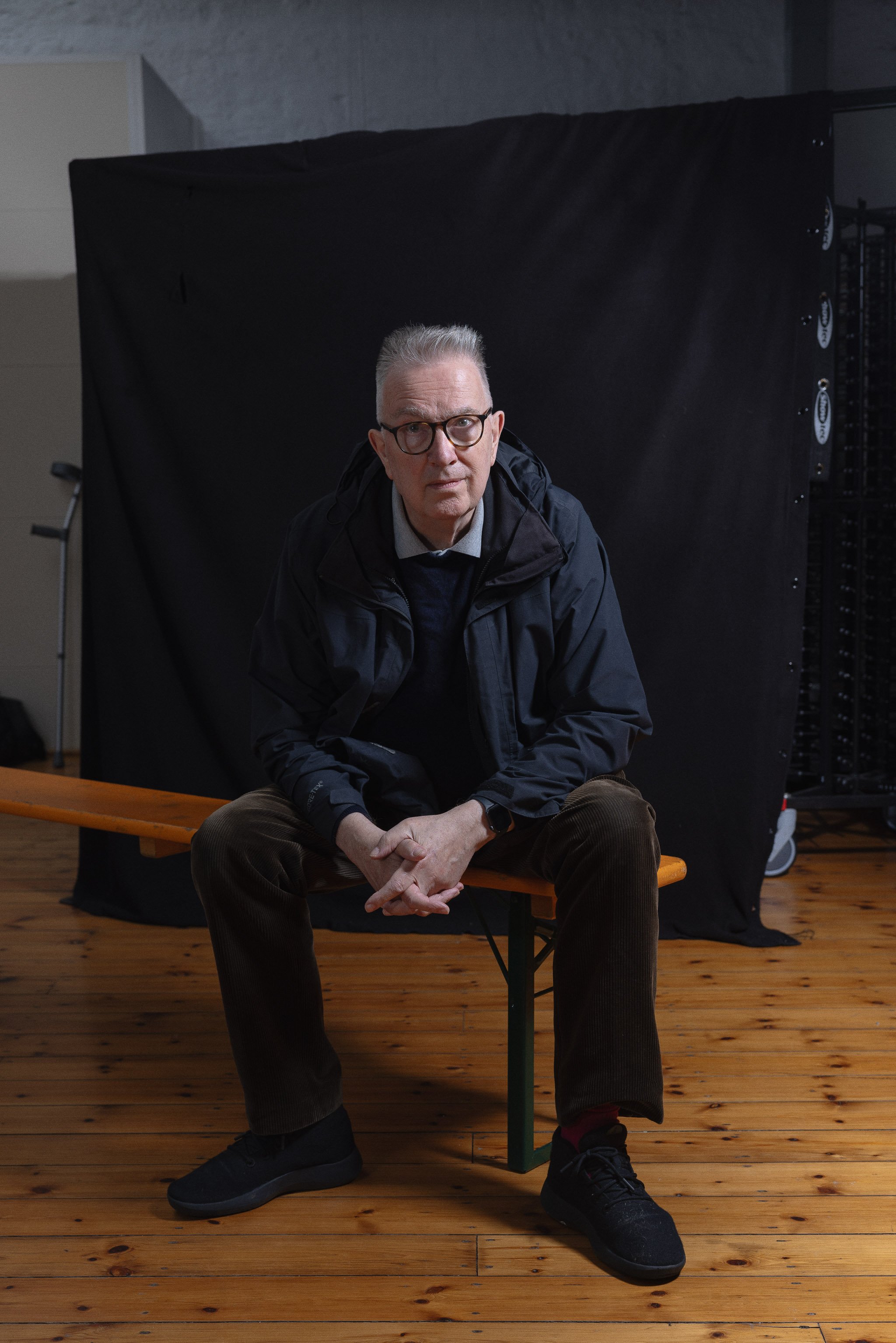
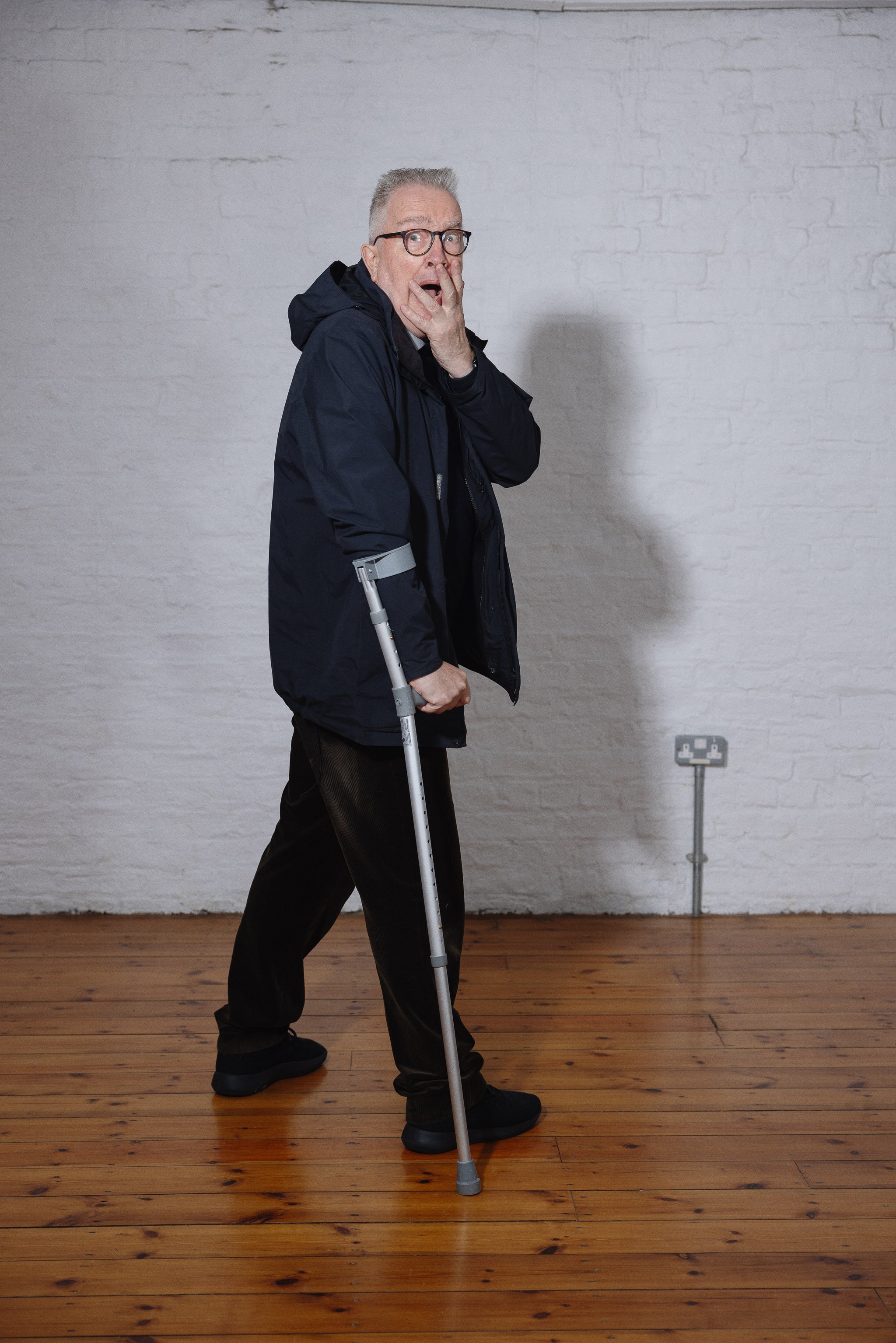
It rings true for Tom, who found fans from the Tom Robinson Band era of the 70s stuck with him, and in 2015 - twenty years after his last album - he was able to crowdfund the release of Only The Now, which featured contributors as eclectic as John Grant, Martin Carthy, Nadine Shah, Billy Bragg and Sir Ian McKellan.
“For the first time ever I released an album completely out of debt,” he says. “We got something like £20-30,000 from people buying the album in advance, so that we could make it. Then when we actually released it, they all got their albums and all our bills were paid, and every copy sold after that has been profit. That’s an unimaginable situation from what we used to do, going into debt with record companies.”
It’s a sign of how the industry has changed, with those gatekeepers diminished, and the strength of artist-fan connections a far more important currency.
I ask whether it changes what success looks like for people wanting to make a career as a musician - Tom’s enthusiastic in his response, and gives his advice to those trying to do just that.
“Recognise your destiny is not the man from EMI with the magic wand who is going to come down, wave it around and turn you into a star,” he says. “Your destiny is those people who are at the gig, growing in number, being part of your family. It’s your long-term relationship with those very people that will determine your longevity and your future career.”
Throughout our conversation, Robinson refers back to that importance of finding the tribe for your music, and building deep, direct relationships with fans. It’s clear he sees that as integral to his own success, and - while the tools at their disposal might have changed - it remains critical to emerging artists now.
“A lot more power rests in the hands of the creators than it used to,” says Tom, who alongside his gigging and broadcast roles is patron of North East artist development organisation Generator.
“I think the role of Generator is to be enablers for our artists and say to them ‘yes, you can’ and here’s how,” he continues. “Focus on what really matters, get the songs right; above all, the songs. What’s going to change your career isn’t an appearance on such-and-such TV show, it’s not an appearance at Glastonbury, it’s a song. One killer song will be like the Saturn rocket that lifts the space shuttle off into the stratosphere,” he continues. “A song that is so ‘WTF, Oh My God, Who Is This?’ that you hear it once on the radio and you go ‘Google this, quick! Let’s Shazam it! Find out who that is!’. A great song is the key to everything.”
The Tom Robinson Band has a few of those. Their first single, 2-4-6-8 Motorway, went to No. 5 in the charts in 1977 and Robinson had a solo hit with War Baby which reached No. 6 in 1983.
But it’s the gay rights anthem Glad to Be Gay which defines Robinson more than anything else. The 1978 single, lifted from a live EP Rising Free, reached No. 18 in the charts despite being banned by Radio 1.
It’s a reminder of the times that the track opens with Tom dedicating the song to the World Health Organisation: “It's a medical song, and it concerns a disease whose classification according to the International Classification of Diseases is 302.0”.
It wasn’t until 1990 that homosexuality was removed from the list of ‘mental disorders’ recognised by the World Health Organisation, and it took several more years before the updated definitions were adopted by individual nations across the globe.
I ask Robinson about the power of music in instigating social change, and he’s thoughtful, but careful not to oversell its importance.
“Music on its own doesn’t change minds, hearts, opinions or events,” he says. “There were some great songs in the civil rights struggle of the 60s from the likes of Nina Simone, Marvin Gaye. I don’t think those songs brought civil rights any closer for having been written. I think it was the individuals who fought on the ground, the brave fuckers who actually went down into the racist south and marched into forbidden areas and got beaten with billy clubs for their pain.”
What music can be, he says, is a soundtrack for those struggles. He quotes Bob Geldof, saying political music is ‘tonic for the troops’.
“I don’t think many National Front skinheads came to Rock Against Racism concerts in the 70s and changed their minds and thought ‘oh God, I’ve been so stupid’,” Tom says, “but I think a lot of people who had been appalled by what they saw coming from Enoch Powell, Eric Clapton and the racist right showed up at Rock Against Racism concerts, found they were there with a thousand other people and realised they weren’t alone.”
That comradeship, he says, gave people the confidence to go out and challenge their fathers, their brothers, their teachers, one-to-one - and that was what changed how people felt.
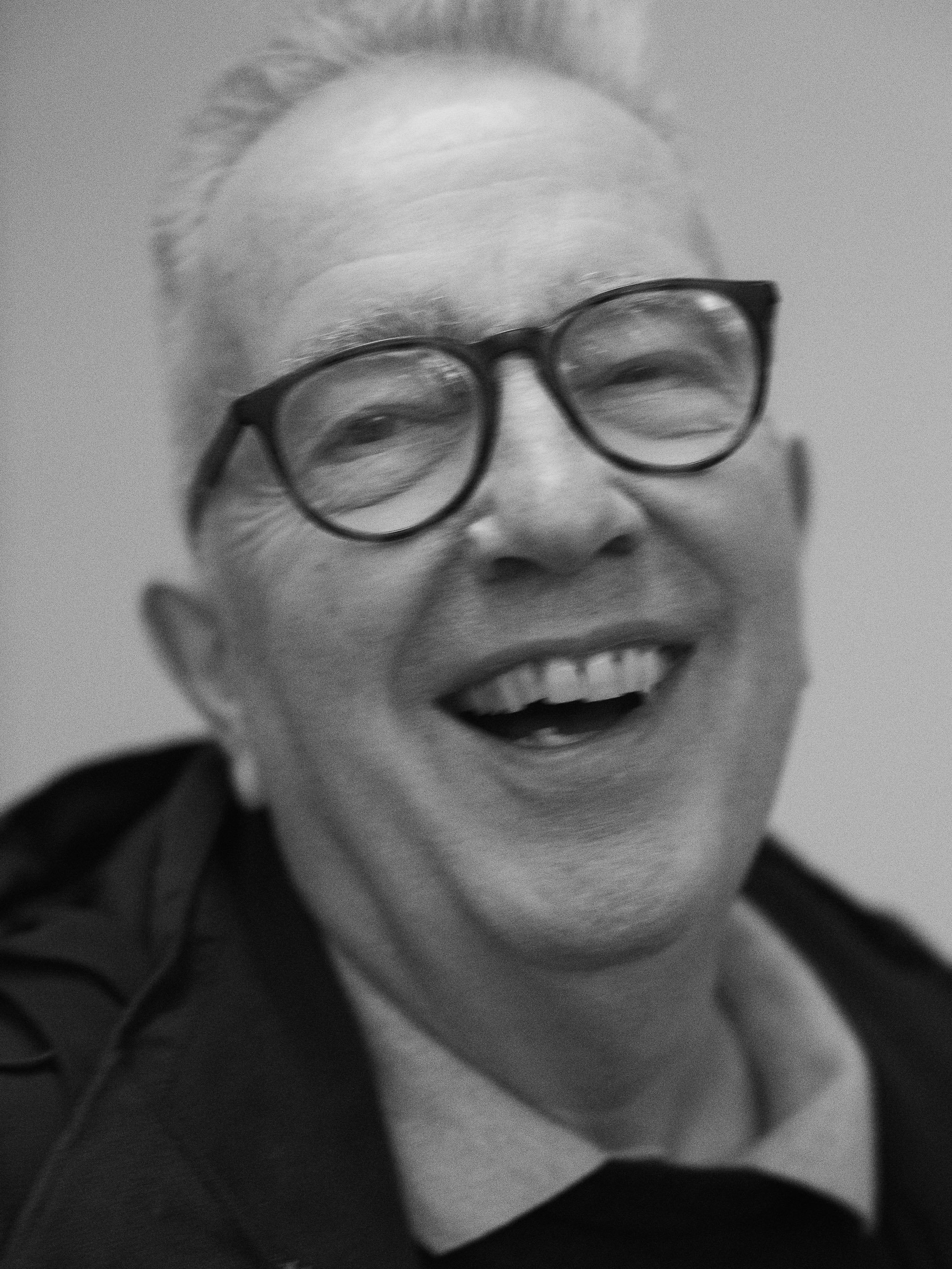
“Those of us who believe in tolerance, humanity, compassion, diversity, need to watch out and play our part to keep those lives open.”
Talking about Glad to be Gay in particular, Robinson says: “That, I don’t think, in itself changed hearts and minds, but I do think - encouraged by that song - a lot of ordinary lesbians, gay men, LGBT people at that time found the courage to come out. It was that coming out that has changed hearts and minds over the last forty years. It’s because queer people have been so much more visible in that time that tolerance has really increased, out of anything I could have possibly imagined or dared hope for in the 70s.”
“The idea that you could have gay MPs, or gay TV presenters, just living their lives openly,” he continues, “that queer kids growing up can actually look and see role models around the place, saying ‘look, you can have a happy life like me’. That would have been a wonderful thing to have in the 60s. It’s down to the courage of the activists on a one-to-one basis that the world changes.”
I ask about the experiences of trans people, and the risk that progress that has been made could be lost as people’s lives are treated as political issues.
“We will backslide, there’s swings and pendulums,” Robinson says. “We’ve seen it around the rest of the world, and it’s coming, that there will be a slippage.”
He’s slow and deliberate with his words, talking about what is a sensitive and emotional issue.
“It’s that old saying that the price of freedom is eternal vigilance,” he continues, “and that those of us who believe in tolerance, humanity, compassion, diversity, need to watch out and play our part to keep those lives open. It’s undividable, you can’t go ‘we’re going to fight for trans people’ but not fight for women in Me Too. You can’t go ‘we’re going to look out for gender politics’ but ignore the racism that’s all around us.”
Ultimately though, Robinson is of the opinion that the UK is a better place than it was.
“Having been born in 1950, having grown up with the playground chants and the school books that I did,” he says. “then having lived through the 60s, and the 70s, and the 80s, and the 90s, despite everything - despite everything happening in Downing Street for the last ten years - this is so much kinder a society. A so much more tolerant society, and a so much more integrated society. It’s not right, it’s nowhere near done, or perfect, or acceptable even, but compared to what it was - the police corruption, the power of the Daily Mail, all these horrible things, they are less than what they were.”
We’ve gone down into a bit of an earnest ditch in the final few minutes of the interview (which was the fault of my questioning), and Tom - with the professionalism you’d expect from a seasoned broadcaster and performer - seeks out a positive and energetic note to end on.
“People say ‘don’t you miss the good old days of punk rock, Tom?’ No, I fucking don’t!” he exclaims. “I don’t miss the times when spit used to be dripping off my bass guitar strings and skinheads would regularly come and beat up the audiences at Clash concerts, no, it was horrible.”
“The good old days are here and now,” he says, “even with everything that’s going on.”


